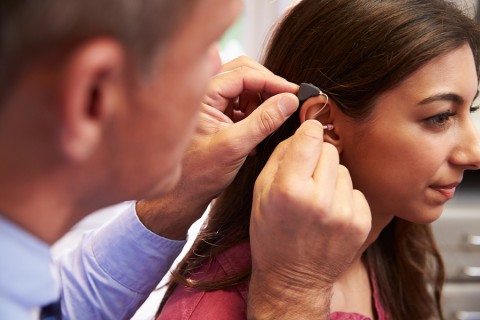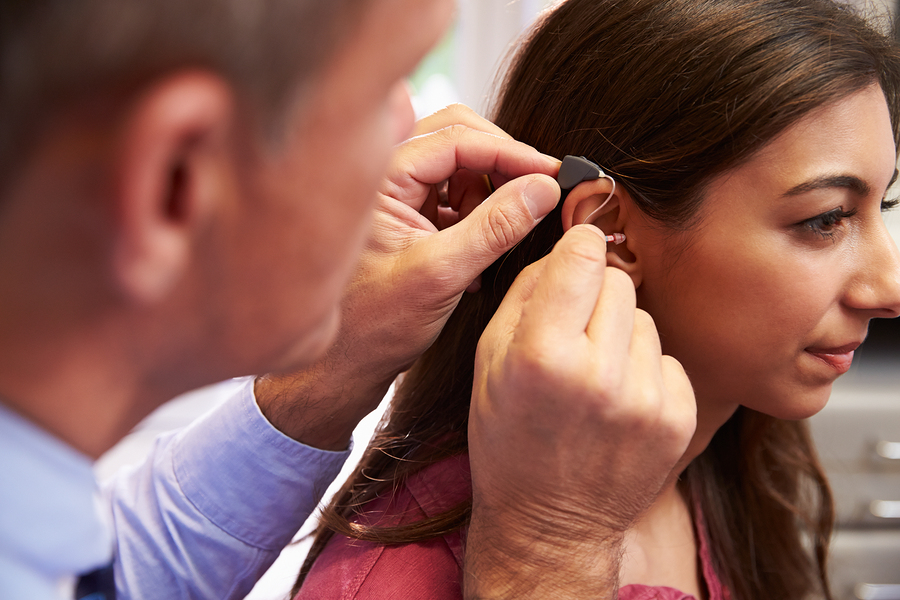 Audiologists are healthcare professionals who diagnose and treat disorders related to the auditory and balance systems. They specialize in preventing hearing loss, identifying hearing and balance issues and determining and administering treatment.
Audiologists are healthcare professionals who diagnose and treat disorders related to the auditory and balance systems. They specialize in preventing hearing loss, identifying hearing and balance issues and determining and administering treatment.
Job Duties
Audiologists may specialize in geriatrics, pediatrics, balance, hearing aids, cochlear implants, tinnitus and auditory processing. In general, they are responsible for evaluating hearing and determining if an individual requires an assistive device. They also fit patients with hearing aids, evaluate and treat balance disorders, counsel patients and family and offer communication strategies, such as lip reading or American Sign Language.
Work Environment
A majority of audiologists often work in clinical settings such as hospitals, physicians’ offices, nursing homes and audiology clinics. Some professionals may also work in schools, and check students for hearing issues.
Most audiologists work a full-time schedule, meaning Monday through Friday, during business hours. Some may also choose to work weekends or evenings to meet patients’ needs. Audiologists who work on a contract basis may spend a majority of their time traveling between facilities such as school systems to provide services.
Job Outlook & Salary
The U.S. Bureau of Labor Statistics (BLS) estimated a job growth rate of 34% by the year 2022, a rate significantly faster than the national average for all other occupations. This growth may be due to an aging Baby Boomer population who will, or are experiencing hearing loss and require the services of an audiologist.
According to BLS data from May, 2012, the median annual wage for audiologists was $69,720. The lowest 10% reported earning less than $44,000, while the top 10% reported earning more than $100,000 annually. As the demand for audiologists continues to rise, so might the career earning potential.
Education and Training
Audiologists are required to obtain at least a bachelor’s degree in any field in order to be eligible to enter a four-year graduate degree program where they can earn their doctoral degree in audiology (Au.D.). Upon graduation from an accredited university or college, audiologists must become licensed in all states.
There are several certifications audiologists can earn that may help them increase their knowledge and experience in the field. Earning the Certificate of Clinical Competence in Audiology (CCC-A), offered by the American Speech-Language-Hearing Association as well as a credential through the American Board of Audiology (ABA) can showcase as audiologist’s complete understanding of the field. While certification may not required by all states or employers, it’s often recommended audiologists earn at least one certification.
Important Skills and Qualities
Desired skills and qualities typically seen in audiologists include excellent communication skills and patience. Audiologists should be able to assist patients who require a lot of special attention, and that includes clearly communicating test results, medical diagnoses and treatment plans.
Audiologists can also see a variety of people, from young children to the elderly. It’s important they show compassion and support for patients and their families, as they may be scared and unsure how to cope with hearing problems or a loss of balance. Finally, audiologists should possess strong critical thinking and problem-solving skills. They work in a very delicate field, so it is imperative they properly analyze each patient’s situation and make the correct diagnosis.
Hearing loss can be a big obstacle that can limit communication with others. However, audiologists can manage hearing loss and help people overcome it and find an improved quality of life.









